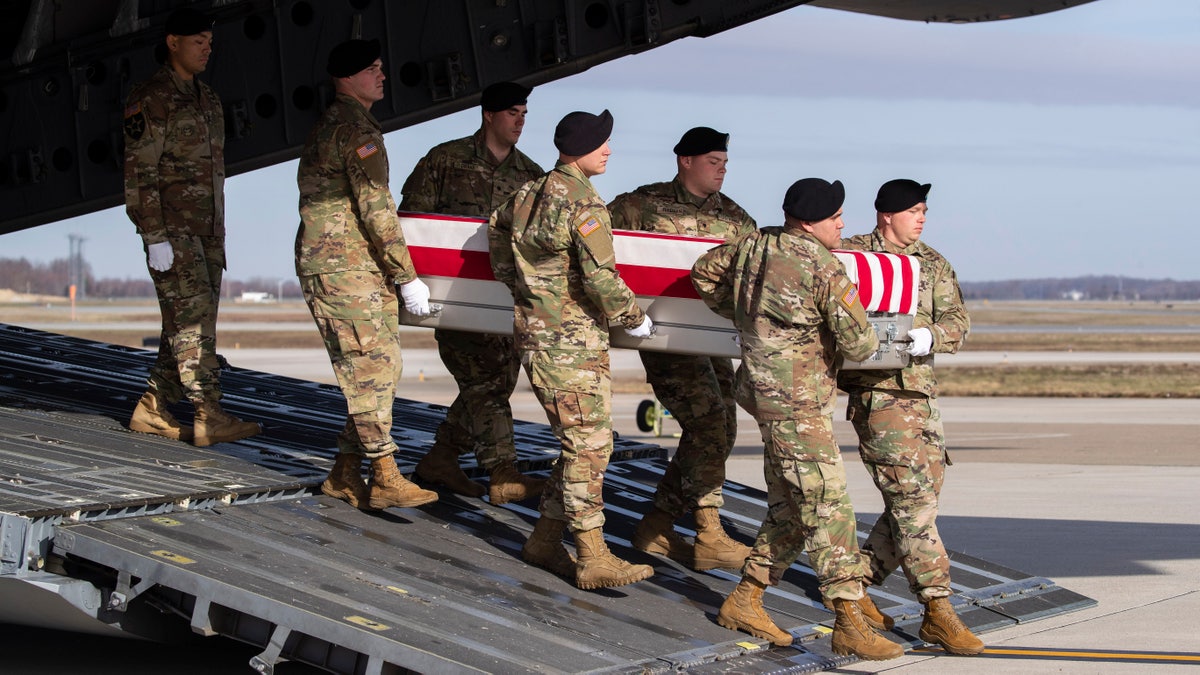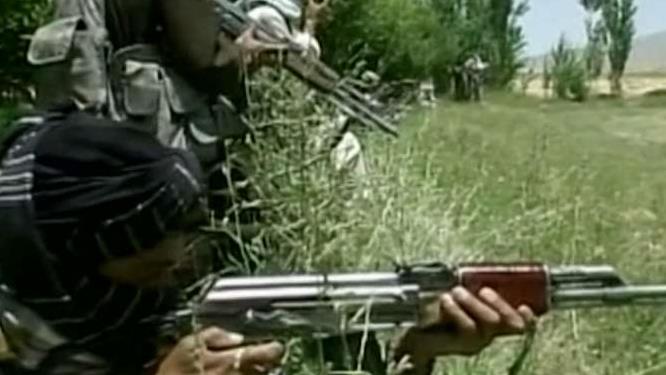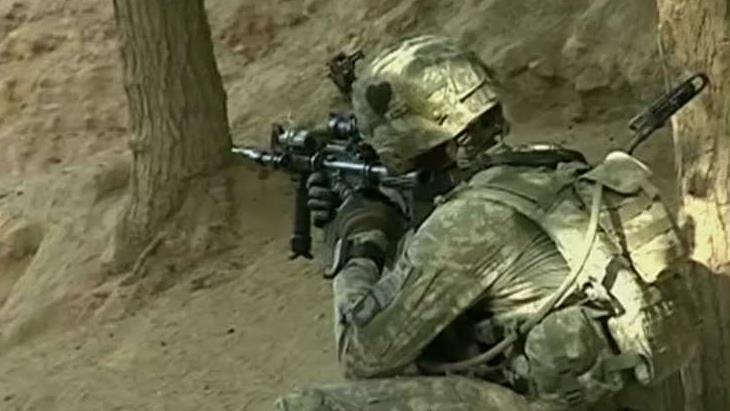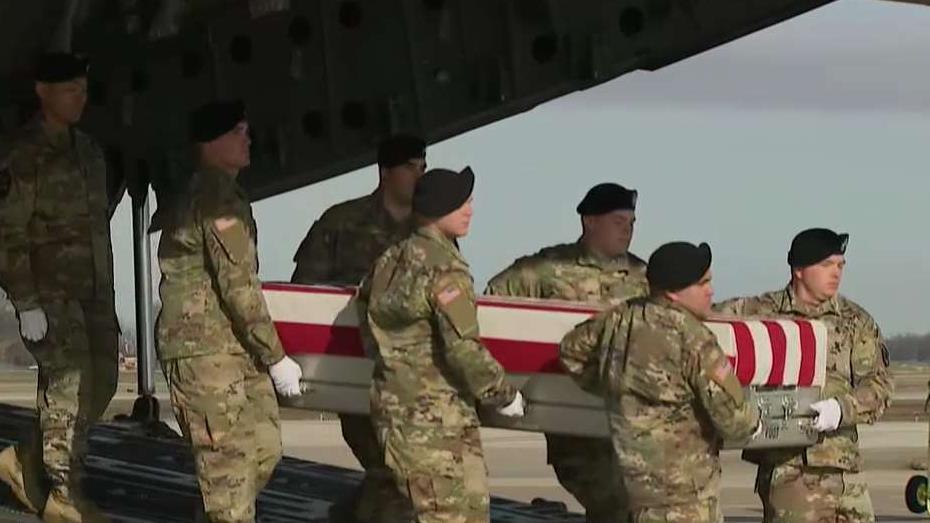Just over one month after President Trump said that the United States reopened peace talks with the Taliban during a surprise trip to Afghanistan, the Taliban council apparently agreed on Sunday to a temporary cease-fire nationwide that may provide a window to a future agreement.
Trump, who made his first trip to Afghanistan on Thanksgiving under a veil of secrecy for security reasons, told troops gathered at the Air Force base for Thanksgiving dinner that the Taliban "wants to make a deal very badly." The surprise trip and comments were made three months after the president scuttled negotiations between Washington and the Taliban.
On Sunday, Taliban officials familiar with the negotiations told the Associated Press the Taliban shura, or ruling council, agreed to the temporary cease-fire, which may last for 10 days. The Taliban chief must approve the agreement but that is expected, the officials told the AP.
The officials spoke to the news agency on condition of anonymity because they were not authorized to talk to the media.
The temporary cease-fire came after members of the Taliban negotiating team met for a week with the ruling council before they agreed on the brief ceasefire. The negotiating team returned on Sunday to Qatar where they maintain their political office, according to the AP.
If a peace agreement can be reached during the 10-day window, it would allow Washington to bring home its troops from Afghanistan and end its 18-year military engagement there, America's longest. The U.S. wants any deal to include a promise from the Taliban that Afghanistan would not be used as a base by terrorist groups. The U.S. currently has an estimated 12,000 troops in Afghanistan.
But in the year that the U.S. and the Taliban have been working to hammer out an agreement, direct negotiations with Afghans on both sides of the conflict have emerged as a key issue.
If a U.S.-Taliban peace deal is signed, negotiations between opposing sides in Afghanistan are expected to be held within to weeks to determine what the country will look like after the U.S. leaves and how big a role the Taliban will have, according to the AP.

In this Dec. 25, 2019, file photo, an Army carry team moves a transfer case containing the remains of U.S. Army Sgt. 1st Class Michael Goble, at Dover Air Force Base, Del.. Goble, a U.S. Special Forces soldier who died in Afghanistan when he was seizing a Taliban weapons cache when he was killed, the U.S. military said Friday. (AP Photo/Alex Brandon, File))
Those negotiations are reported to cover a wide range of subjects, such as the rights of women, free speech and the fate of the tens of thousands of Taliban fighters, as well as the heavily armed militias belonging to Afghanistan's warlords who have amassed wealth and power since the Taliban's ouster.
US AND TALIBAN REOPEN PEACE TALKS FOR FIRST TIME SINCE TRUMP DECLARED POTENTIAL DEAL DEAD
The Taliban have previously refused all offers of a ceasefire by the Afghan government, except for a three-day truce in June 2018 over the Eid al-Fitr holiday.
The reported cease-fire agreement comes after a Taliban attack in northern Afghanistan killed at least 17 local militiamen on Saturday and nearly a week after an American soldier was killed.
Jawad Hajri, a spokesman for the governor of Takhar province, told the AP the attack in the province targeted a local militia commander who escaped unharmed.
CLICK HERE FOR THE FOX NEWS APP
On Monday, Sgt. 1st Class Michael Goble of Washington Township, N.J. was killed in combat in the northern Kunduz province. The Taliban claimed they were behind a fatal roadside bombing that targeted American and Afghan forces in Kunduz. The following day, a Taliban attack on a checkpoint killed at least seven Afghan army soldiers in the northern Balkh province.
Another six Afghan troops were killed in the same province Thursday in an attack on an army base. At least 10 Afghan soldiers were killed Friday in a complex attack on a checkpoint in the southern Helmand province.
The Taliban frequently target Afghan and U.S. forces, as well as government officials. But scores of Afghan civilians are also killed in the crossfire or by roadside bombs planted by militants.
Fox News' Brooke Singman, Andrew O'Reilly, Louis Casiano, Jenny Buchholz, and the Associated Press contributed to this report.













































